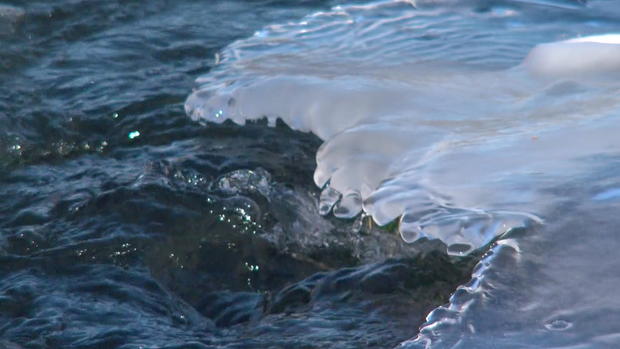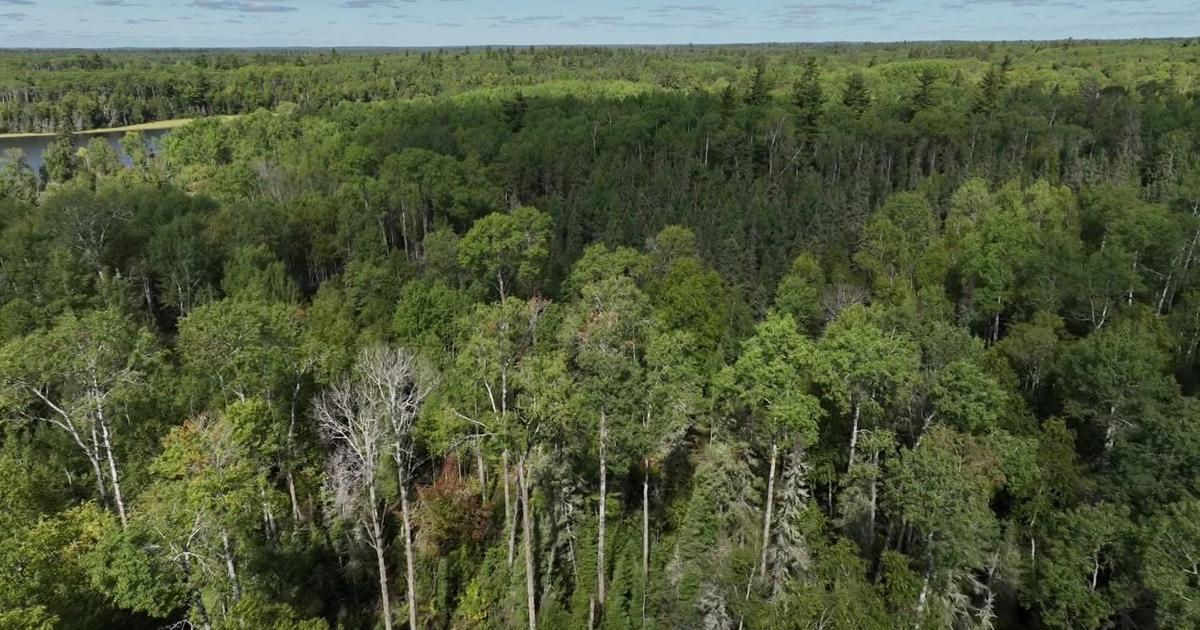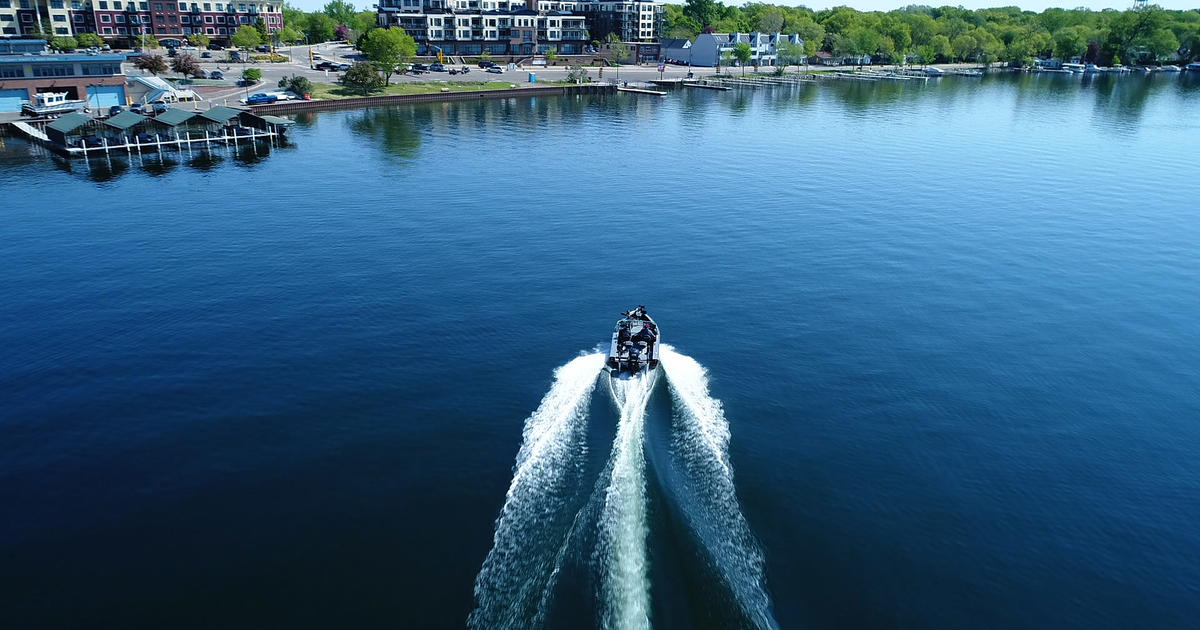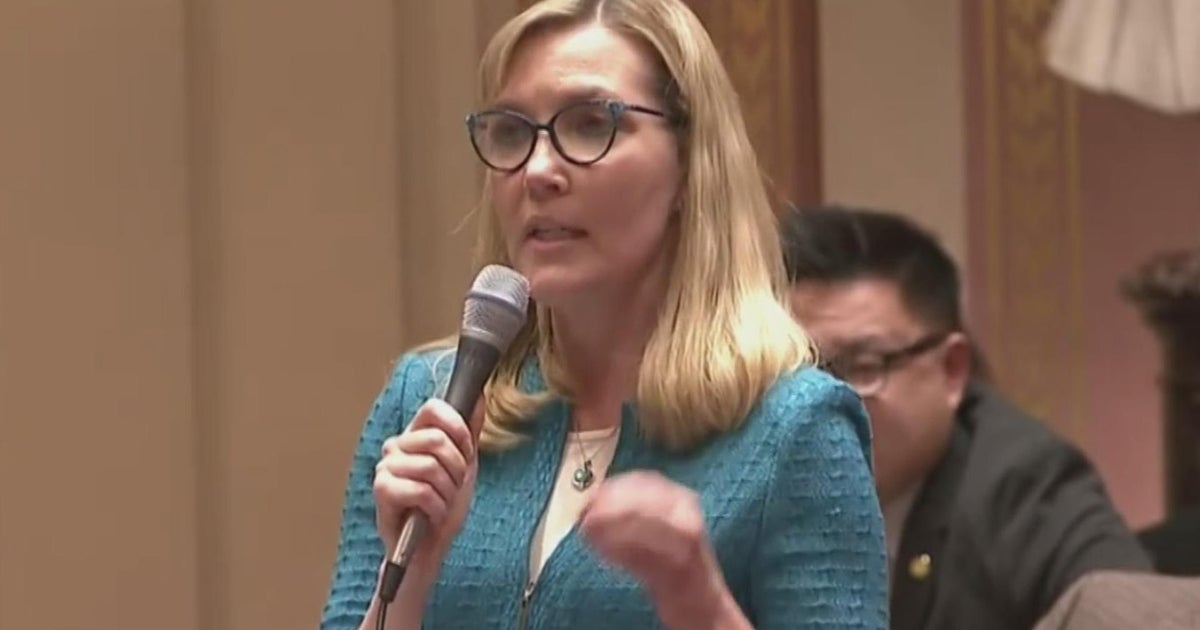Warming Winters Up North Is 'Signature Change' In Minnesota's Climate, Experts Say
MINNEAPOLIS (WCCO) -- Minnesota is known for its winters, but the northern part of the state is home to some of the fastest-changing winter conditions in the country. Even though many other places are now warming at that rapid rate, too.
"Warming winters, that's our signature change in our climate for sure," said Kenny Blumenfeld, with the Minnesota Department of Natural Resource's State Climatology Office. "They change in a subtle way, but they're changing profoundly."
Take the ice on our 10,000 lakes for example. Lakes now freeze over about nine days later than they did in 1967. And the ice gives out four to five days earlier.
"So we're almost about two weeks less of ice coverage in a given year on average," said Pete Boulay, assistant state climatologist.
That shrinking ice fishing season is catching some attention at Blue Ribbon Bait and Tackle. Dick "Griz" Grzywinski is known as a walleye whisperer who angled his way into the state and national fishing hall of fames.
"There's never a bad day in fishing," Grzywinski said.
No matter the weather, even at 80 years old, he makes it out there.
"We've even worn hip boots or waders and get out to the ice, crawl up on top then walk out, so you're a hardcore, you know," he said.
But there's no denying our warming winters are squeezing winter recreation.
"I used to pull out my fish house onto the lake on my birthday on December 5, and now you can't do that anymore [laughs]!" said John Hoxmeier, with the Minnesota Department of Natural Resources.
Hoxmeier says early ice out and warming lakes are hurting walleye and pike production, too.
"It's a passion of mine and that's why I want to protect it," Hoxmeier said.
Winter recreation like ice fishing is not just a hobby. It's part of Minnesota's identity -- and it's big business.
"It's a culture we have in Minnesota. [It] also ... makes Minnesota a destination," Hoxmeier said. "Fishing in Minnesota generates a lot of money."
"We kind of live for winter because if you can't, then half your year is ruined," Blumenfeld said. "Because we're not going to have perfect powder conditions every winter, we know that those days are gone now."
And it's not all about us.
"This can have profound impacts on our ecosystems and our forests and everything that lives here," Blumenfeld said.
The changes are subtle. Less snow stays on the ground, and the cold snaps aren't as cold.
"Northern Minnesota winters have eroded quickly. They've changed quickly, so a typical winter night in northern Minnesota is now about 7-degrees warmer than it was just, you know, several decades ago," he said. "Even when we look at how cold it felt this winter, we can look backwards and see it really wasn't that cold historically."
But there's nothing subtle about it when you look at the big picture.
"We have seen in northern Minnesota, yes, some of the fastest-changing winter conditions in the country," Blumenfeld said. "This is our signature change that we've observed here."
Climatologists also say less snow pack can contribute to more warming.




